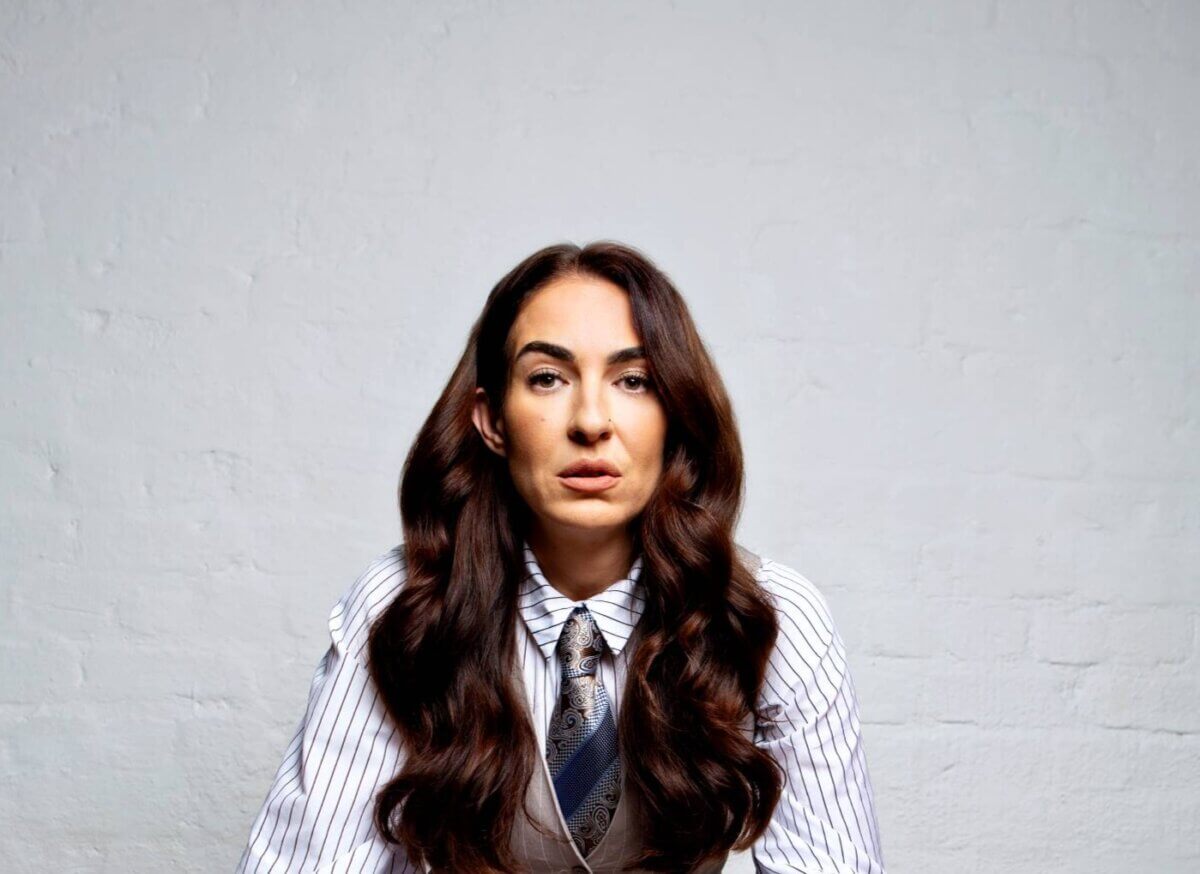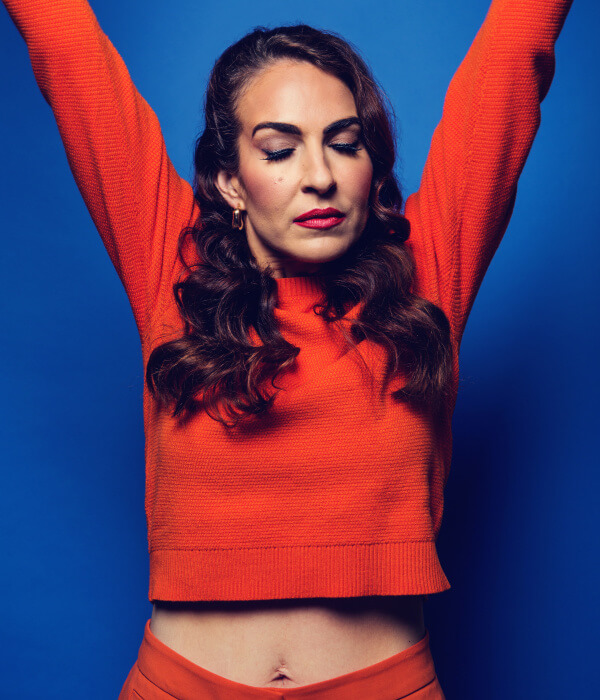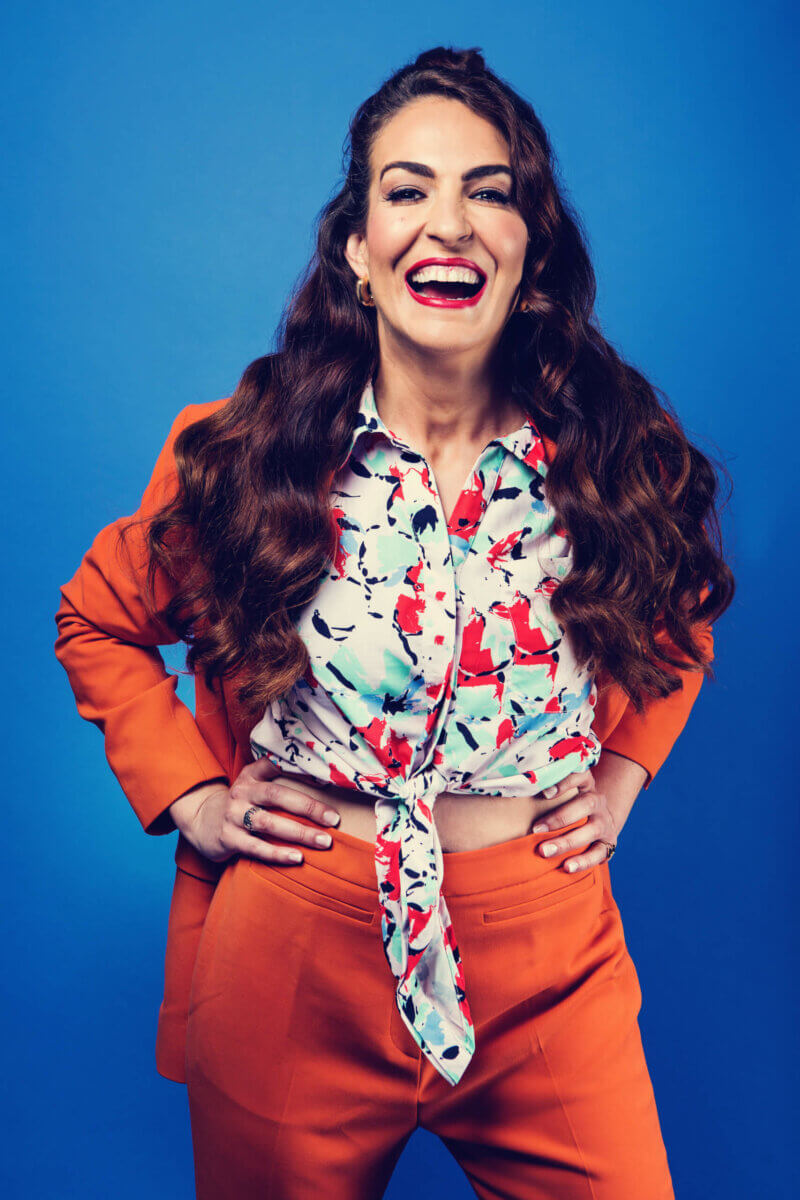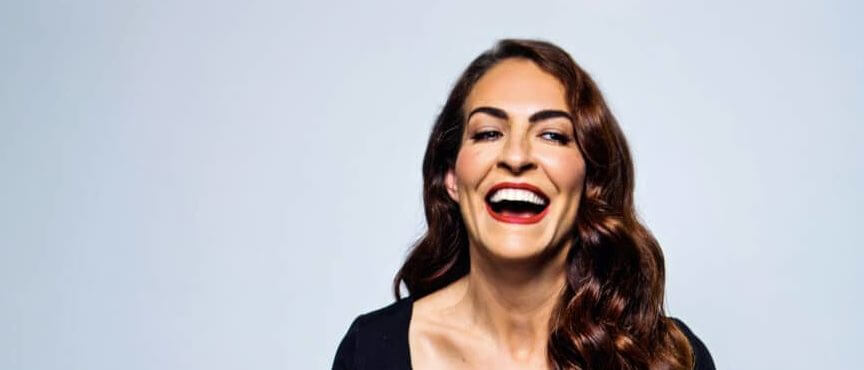What’s Your Problem? is a podcast recorded at the Big Belly Comedy Club, where we try to figure out what’s wrong with comedians that makes them want to tell jokes on stage.
Esther Manito is a British-Lebanese comedian who’s performed at clubs all around the UK and internationally, and has appeared on Live at the Apollo (BBC) and the Stand up Sketch Show (ITV). Interviewed by Lance Carter.

So many things!
I think the reason I honed the skill of making people laugh was purely because I was growing up at a time where I didn’t fit in. I think it’s quite a natural thing to develop when you’re trying to not stand out. You’re trying to make yourself as non threatening as possible and also as amenable as possible.
So you kind of develop this skill, and think “if I can just be The Joker and the clown then it diverts the attention from being picked on or bullied.”
It was mainly because I was an Arab kid growing up in Essex where there wasn’t any real diversity during the Gulf War, and having parents that don’t really fit in with the norm. It was totally just deflection.

That gives you a lot of comedy. But anyone who is mixed, you tend to create multiple personalities to fit in with all the different sides of your family.
So it kind of becomes this natural direction that you become funny because you’re always under criticism from one side of the family because, culturally, people always want to feel that they’re doing things the correct way. So when they’re critical, it always will come across as criticism of your other side.
A good way of just deflecting that is that you try and preempt it. So before they can even get to you the criticism, you’re just in there straight away with “Oh, I know I do this! Isn’t that crazy?” So you’re just constantly finding ways to make things a lot less hurtful.
I mean, I don’t know if I am particularly likeable.
I don’t know if I am. I don’t know whether I’ve kind of taken on a bit of a persona, where I allow myself to say the things that mothers and women in straight relationships may not feel okay saying out loud. So I’m not necessarily likeable but I’m kind of taking the hit, being relatable, but in a way that makes women in the audience think “I’m glad you said that, because I wouldn’t, I still want to be socially acceptable.”

I did the Camden comedy school, but I didn’t plan on doing the stand up at the end.
My friend asked me if I wanted to do a comedy writing course, and I had a five month old and a two year old at the time, and I felt like I was going a bit mad so it would be nice to do something creative. I quite like doing courses, just going along and doing something new.
So I decided to go along, but not do the standup at the end because that’s mental. You had to do five minutes of standup at the end at the Backyard Comedy Club and I thought I’d just bail out. But I ended up doing it, and then I got bitten by the bug and started doing open mics.
Yeah, I did all the open mic nights, week in week out, very slowly started building up to get some paid gigs, and then I got signed by a really small agency who just got me slightly bigger paid gigs.Then I just slogged away at live comedy until I could quit my teaching job and go full time.

I’ve got such rose tinted glasses. I really missed them, because there’s real camaraderie that you don’t have now. You still get it sometimes when you do a gig and everyone’s in really good spirits, everyone wants each other to have a good gig, but I do miss the open mic nights and I guess it’s because that was when you’re with a lot of people that you started out with. It’s almost like school years, they’re all your mates.
But I think the hardest thing with an open mic night is obviously when you’ve got 27 acts and you don’t finish until about four o’clock in the morning, and you can’t ever leave.
I did a Women’s Institute gig – I’ve done a few and I like them – this was a fete in a church. I’m not 100% sure how they thought comedy would work, but they literally had all those stalls with cakes and cream teas, and just a bit of comedy in the corner. So I was just kind of wittering in a corner as people walked around pushing prams and stuff, like I was a speaker on Hyde Park Corner.
It takes a little while to really find a voice. And sometimes you try to please an audience, rather than be authentic to yourself.
I just think it takes a while, but once you really find the thing that really gets you going on stage, your audience just comes to you, and you’ll be really surprised as to who they are.
There will be people that you didn’t even think of that suddenly are really on board with that. And then you get to a point where you can put on a show, and those people are buying tickets. So I know it’s a process you will have to go through, but just remember that you kind of have to drag yourself through that process of thinking, what is it that people want to hear about?
But whilst doing it, just keep in the back of your mind “What is it that really excites me? What is it that I really want to talk about?” Because that’s the thing that’s really going to kick off on stage when it’s really authentic.

Don’t put these ridiculous expectations on yourself. Don’t set goals that are going to really stress you out every day. Take it as it comes. I mean, my thing is to never have any expectations.
I’ve just done my first tour and genuinely thought, if I turn up and there are 10 people there, that’s 10 people that have spent money to come see me, I’ll be so happy. Then when I exceeded that, getting rooms of 100 people, it’s so lovely.
So don’t put pressure on yourself. You know, just really enjoy it. You got into it for a reason to make people laugh on stage, so remember that.
If you’re performing to a few people in a cafe because they’ve decided to set up a local comedy night, that’s their night out, and you’re providing that service. It’s their night out, and how fucking great is it that you’re their night out? It’s brilliant!
Bookings for our Bar on the Southbank, SE1 Baby